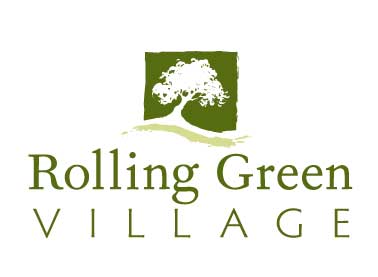 CAN MUSIC BRING BACK LONG-LOST MEMORIES?
CAN MUSIC BRING BACK LONG-LOST MEMORIES?
We’ve all had the experience of hearing a song from the past, especially one we heard as a teenager, that took us back to where we were when we first heard it. Sights, sounds and emotions associated with the song come immediately to mind. But try to remember something particular about that time without the music, and the memories aren’t as immediate or emotional.
What is it about music, especially those songs we heard in our formative years, between ages 12 and 22, that holds such power over our emotions? Why are they so unforgettable? And can music therapy for dementia help awaken old memories?
MUSIC THERAPY FOR DEMENTIA
Clinical studies of older adults with Alzheimer’s or other forms of dementia have shown that “familiar and likable music” can improve mood, behavior, sociability and even cognitive ability.
In Dr. Oliver Sacks’ book, “Musicophilia,” he writes, “It is astonishing to see mute, isolated, confused individuals warm to music, recognize it as familiar, and start to sing, start to bond with the therapist … Faces assume expression as the old music is recognized and its emotional power felt.”
Researchers at the University of Leeds think that memories from our formative years remain highly accessible to us later in life largely because of the emotions attached to them. Who can forget their first kiss, first concert or first love? The emotions we felt during these momentous events (or so it seemed at the time) get wired into our brains for good.
Psychologists call these memories the “reminiscence bump.” According to the reminiscence bump theory, we remember our younger adult lives more vividly than other years because our teenage years are when we develop our identities. The memories that contribute to forming our self-image become uncommonly important throughout the rest of our lives.
The music that played during our formative years gets linked to those memories. Even music that played in the background – on the radio and in bars, clubs and bedrooms – got attached to those times when everything was new and exciting. This may explain why songs you remember but don’t particularly like still evoke vivid memories. Like it or not, they’re part of the soundtrack to the most vital years of your life. And for people with dementia, personally meaningful songs from the past can bring those memories, thoughts and emotions to the fore.
ADDICTED TO THE SONGS WE LOVE
There’s more to musical memory than reminiscence. When we hear the songs we love, it stimulates our brain’s pleasure circuit, which releases dopamine, serotonin, oxytocin and other neurochemicals that make us feel good. This ancient circuitry has evolved to reinforce behavior we find rewarding. The more we like a song, the more we get treated to neurochemical bliss. It’s one reason why music is so highly valued in every human society.
Another factor in creating strong musical memories is an abundance of teenage growth hormones. These hormones tell our brains that everything is incredibly important – including the songs we heard during our teenage years. When we hear the songs, the memories attached to them are charged with emotion and retain an afterglow of the raw passion we felt as teenagers.
OUR BRAINS ARE WIRED FOR MUSIC
Peter Janata, cognitive neuroscientist at the UC Davis Center for Mind and Brain, studied the relationship between Alzheimer’s patients and music. He found that music activates the medial prefrontal cortex, just behind your forehead. It serves as a hub for music, memory and emotions and is one of the last areas of the brain to atrophy as a result of Alzheimer’s. This explains why a person with dementia still remembers the lyrics to an old favorite, but not the day of the week or the street where they live.
When we actively make music, as opposed to passively listening to it, we engage another part of the brain, the cerebellum, that controls balance and movement. Music therapists may begin with passive listening to live or recorded music, but then graduate to getting individuals to play an instrument or sing along to a familiar tune. A drumming circle, for example, gets people moving, helps maintain strength and engages more regions of the brain.
MUSIC THERAPY IS HEALING AT EVERY STAGE OF DEMENTIA
Studies have shown that people with Alzheimer’s or other forms of dementia respond to music at all stages of the disease. In the early stages, listening to music can help people relax and reduce depression. Singing can boost brain function and mood. Music therapy groups can challenge cognitive skills and encourage social interaction.
In the later stages of dementia, music can help calm agitation or aggression. It can awaken people who have become isolated and help them become more engaged and aware of their surroundings. Playing music, drumming circles or simply getting someone to tap their feet to music can help maintain motor skills, even in later stages of dementia.
In “Musicophilia,” a music therapist describes how music can “act as a can opener for people’s memories.” When she sings in nursing homes, “staff can suddenly see their charges in a whole new light, as people who have had a past, and not only a past but a past with joy and delight in it.
There are listeners who come and stand beside or in front of me, touching me, for the whole time. There are always people who cry. There are people who dance, and people who join in … There are disturbed people who become calm, and silent people who give voice, frozen people who beat time. There are people who don’t know where they are, but who recognize me immediately, as ‘the Singing Lady.’”
CHOOSE MUSIC THAT’S PERSONALLY MEANINGFUL
with dementia. If you’re not sure what music to play, start with popular music from when your loved one was 15 to 25 years old.
- Think about your loved one’s preferences. What kind of music does he or she enjoy? What music evokes memories of happy times? Is religious music important to your loved one? If so, hymns may elicit feelings of familiarity and security. Ask older family members if they can recall songs that are personally meaningful to your loved one.
- Set the mood. Choose soothing music to alleviate restlessness and agitation during mealtime, bath time or bedtime. To boost mood, try a more upbeat song with a faster pace. Try exercising or dancing to music. To create a sense of comfort, look for classic folk songs with easy to remember lyrics such as “She’ll Be Comin’ Round the Mountain” and “I’ve Been Working on the Railroad.”
- Pay attention to your loved one’s response. If he or she seems to enjoy a particular song, play or sing it often. If your loved one responds negatively, choose something else.
Help your loved one clap along or tap their feet. If possible, dance together. Singing to music together can also help stimulate memories and connect you with your loved one.
MUSIC FOR DEMENTIA: A PLAYLIST
Musical preferences vary from person to person and, sometimes, day to day. But if you’re looking for music to get you started, click here for a playlist.
A PERSONALIZED APPROACH TO MEMORY CARE
Our memory care program at Rolling Green Village is designed around each person’s life story. We use reminiscence tools, including musical memories, to personalize programming for each resident.
In addition to music therapy, we’ve introduced advanced nondrug therapies such as interactive robotic seals. These lifelike baby harp seals mimic the actions and responses of a real pet, but unlike a living animal, residents don’t feel threatened by them. They help calm residents who are agitated and elicit a sense of compassion and caring, just like a real pet.
To learn more about our personalized approach to memory care and the therapies available, visit our Memory Care page.
Best Music for Dementia Patients: Sample Playlist
- “You Are My Sunshine”
- “She’ll Be Comin’ Round the Mountain”
- “This Land Is Your Land”
- “Amazing Grace”
- “Over the Rainbow” – Judy Garland
- “Pennies from Heaven” – Bing Crosby
- “Moonlight Serenade” – Glen Miller
- “A-Tisket A-Tasket” – Ella Fitzgerald
- “Moon Glow” – Benny Goodman
- “Nature Boy” – Nat King Cole
- “Memories Are Made of This” – Dean Martin
- “Wheel of Fortune” – Kay Starr
- “Five Minutes More” – Frank Sinatra
- “Look for the Silver Lining” – Chet Baker
- The Goldberg Variations – J.S. Bach



